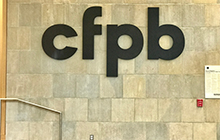On April 3, 2023, the Consumer Financial Protection Bureau (CFPB) filed a notice to appeal a district court’s decision to dismiss its complaint against Townstone Finance, Inc. (Townstone), a nonbank mortgage lender, and its owner Barry Sturner, for allegedly violating the Equal Credit Opportunity Act (ECOA). Relying on the language of ECOA’s implementing regulation, 12 C.F.R. 1102.4(b) (Regulation B), the CFPB based its allegations on statements Townstone purportedly directed toward “prospective applicants.” In dismissing the complaint, the district court rejected the CFPB’s Regulation B theory and found that the unambiguous language of ECOA only applied to “applicants.” The decision to appeal the district court ruling is a significant step in the CFPB’s efforts to expand the applicability of ECOA and its prohibitions on redlining.
The Townstone complaint marked the first redlining enforcement action taken by the CFPB against a nonbank lender. Specifically, the CFPB alleged that Townstone made comments on local radio shows that discouraged prospective African-American borrowers from applying with the lender. Townstone filed a motion to dismiss, arguing in relevant part that ECOA’s statutory language only applied to “applicants” and CFPB’s more expansive definition was improper and not enforceable.
The U.S. District Court for the Northern District of Illinois’s decision found that the unambiguous language of ECOA foreclosed the CFPB’s interpretation and precluded the court from giving deference to the CFPB’s definition in Regulation B. The decision was limited to the statutory interpretation issue. The district court’s dismissal was made “with prejudice,” denying the CFPB any opportunity to amend the complaint.
Consumer Finance Insight’s prior coverage and in-depth analysis of the district court’s decision can be found here.

